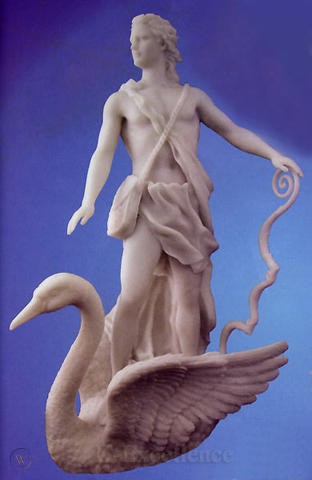 In the movie Ikiru, directed by Akira Kurosawa, an aging bureaucrat discovers he has stomach cancer and is propelled into an existential crisis by the realization that he has wasted his life engaged in a meaningless job. This revelation opens him up, however, to a constructive act: he sets to work transforming a stagnant pond into a children’s playground. This kind of redemptive act at the end of life is sometimes referred to by developmental psychologists as a ”swan song.”
In the movie Ikiru, directed by Akira Kurosawa, an aging bureaucrat discovers he has stomach cancer and is propelled into an existential crisis by the realization that he has wasted his life engaged in a meaningless job. This revelation opens him up, however, to a constructive act: he sets to work transforming a stagnant pond into a children’s playground. This kind of redemptive act at the end of life is sometimes referred to by developmental psychologists as a ”swan song.”
This term comes from the Greek legend of the swan, which actually doesn’t sing during most of its life, but who suddenly springs into articulating something like a song before it dies. Socrates believed that this song was a joyous one because it meant that the swan would join Apollo, the god of poetry and music that it served (see photo).
In another Greek legend, the epic poem The Odyssey, Laertes, the father of Odysseus, as an old man, puts on his armor one more time and joins his son in battle, which represents his version of a swan song. In the creative arts, one sometimes sees this phenomenon expressed in the life of an artist as a kind of ”summing up” of a life. Jean Sibelius, for example, the Finnish composer, had an active life writing seven symphonies, over a hundred songs for voice and piano, incidental music for many plays, an opera, chamber music, and choral music. During the last three decades of his life, however, his musical productivity dropped dramatically. For most of the last thirty years of his life, he even refused to talk publicly about his music. In his ninety-second year, however, just before his death, he took up his composer’s pen once again to orchestrate a song by Shakespeare (”Come Away, Death”) that he had written when he was in his forties.
Reflecting on the people you’ve known in your life who have lived into late adulthood, can you remember any act (it might even have been a seemingly trivial act) that seemed to function as that person’s ”swan song”? If so, share it in the Comments section below. I’d like to hear from you!
For more information about the ”swan song” and other developmental milestones from birth through death, see my book, Thomas Armstrong, The Human Odyssey: Navigating the Twelve Stages of Life (Ixia/Dover).
This article was brought to you by Thomas Armstrong, Ph.D. and www.institute4learning.com.
Follow me on Twitter: @Dr_Armstrong



















